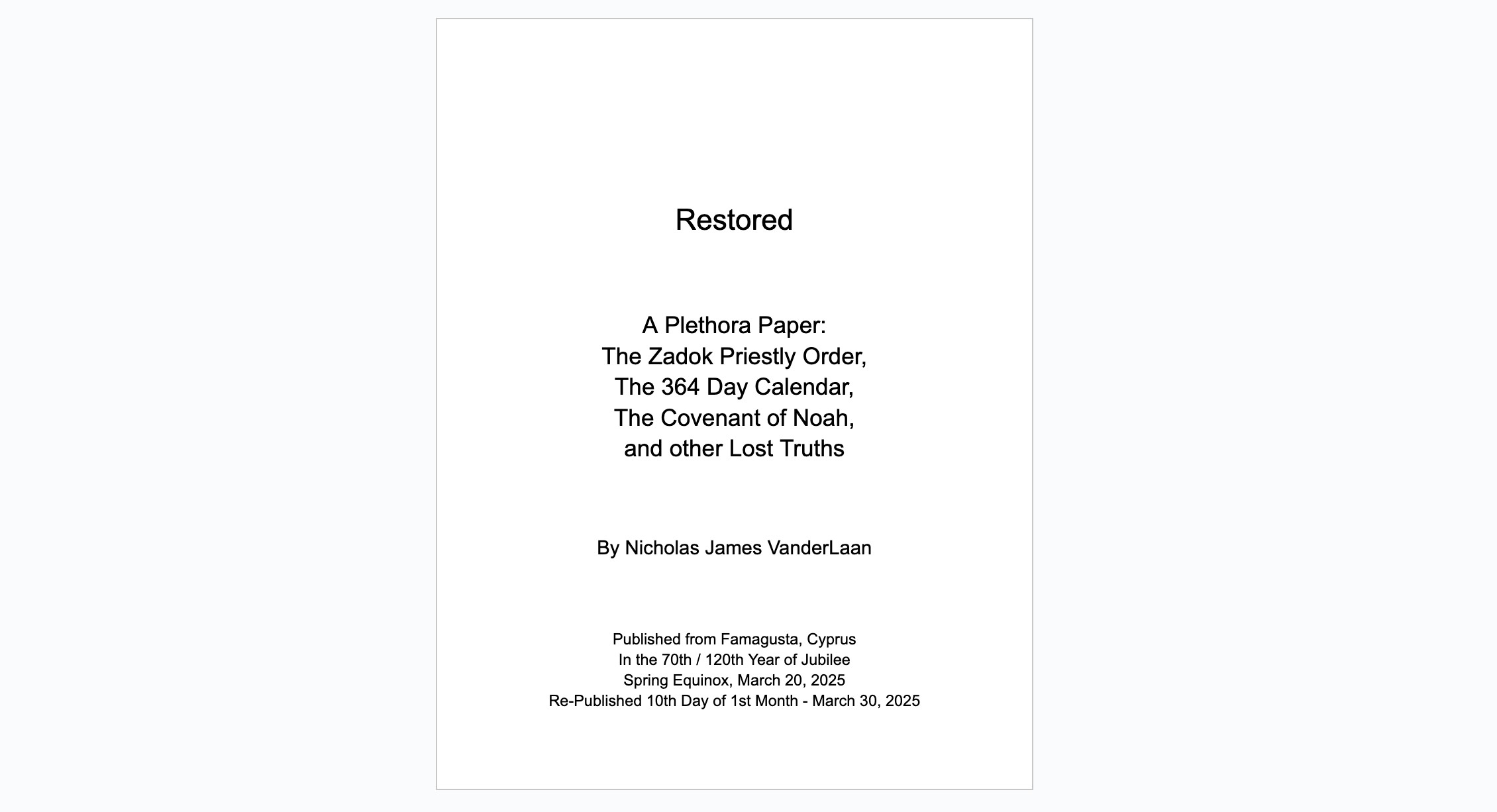Watch
Events
Articles
Market
More
Shalwm, Here is my paper and the Restored Priestly Order according to the Pattern shown King David which is different than the DSS order that I discovered to be of Hasmonean origin!!! I restore the Zadok Priestly Order from when it first commenced to our present day and beyond. In this paper I also completely explain the 364 Day Calendar and prove the correct intercalation from Psalm 19 as hidden by King David.
https://www.364daycalendar.com..../restored-zadok-prie




Here's a list of Apostolic passages I recommend studying with #torah portion #vayikra ("And he called", #leviticus 1:1-6:7), plus links to related commentary and video.
https://www.americantorah.com/....2021/03/16/parsha-va



033125
WORD FOR TODAY “why does this bring wisdom?”: Psa 90:12 So teach us to number our days, That we may present to You a heart of wisdom.
WISDOM FOR TODAY: Pro 16:16 How much better it is to get wisdom than gold! And to get understanding is to be chosen above silver.
www.BGMCTV.org




Celebrate Erev Shabbath with
Sabbath Keepers Fellowship!
Every Sabbath Eve at 8:30pm CST we will host an informal get-together on our YouTube channel to bring-in and honor the seventh-day rest. We will have:
· A short Sabbath eve prayer service
· Greetings to all present
· Highlights of the weekly Torah parasha with commentary
· Followed by live music, discussion and prayer with whomever wishes to bring it.
His yoke is easy and the burden light! Join us for some simple celebration and fellowship to end your week. The entirety of the service should be about 1.5 hours long. If you play an instrument or sing, contact the service admin to join in. If you don’t, just listen as others do their best to honor our Creator on His holy day.
Here’s the link: https://youtube.com/live/5ZZtrq0QD6Q
https://www.youtube.com/live/5....ZZtrq0QD6Q?si=iZZYcF



I came across an interesting point over the weekend that got me thinking. When do we accept the Septuagint as authoritative, and when do we reject it?
Take the Book of Daniel as an example. The original text was written in three different languages—the middle section in Aramaic (the oldest part), with two Hebrew sections added at the beginning and end. Later, the Septuagint introduced additional passages, which Protestants reject, while other Christian traditions accept them as Scripture.
So, my question is: Is there a clear rule for when we accept or reject the Septuagint? Or do we simply use it when it aligns with our doctrines and disregard it when it doesn’t?
If it’s the latter, it seems like we’re bending Scripture to fit our beliefs rather than shaping our beliefs to align with Scripture. 😖
What are your thoughts?
#septuagint




שנה טובה מירשלים!
Happy new year from Jerusalem!
ראש חודש האביב
New moon of the month of Aviv
http://www.campephraim.org/new-moon-in-jerusalem



